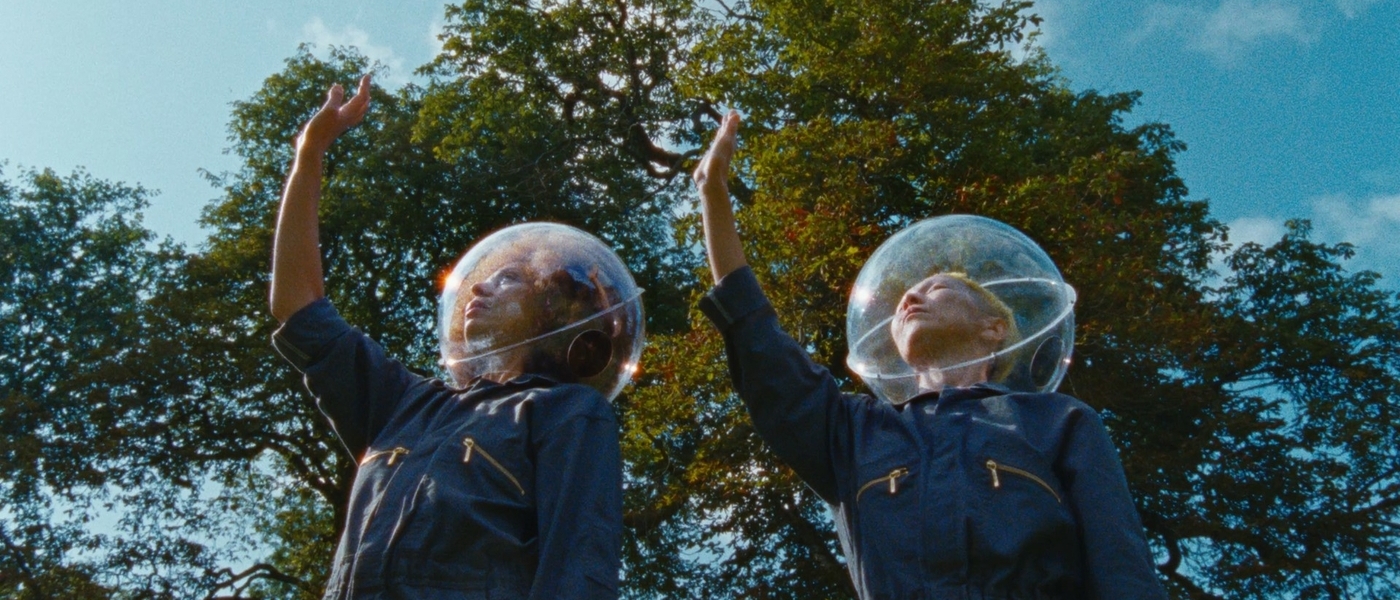Interview with Xandra Popescu, Erogenesis director
by Esther Brejon

by Esther Brejon
Erogenesis is a world unto itself, a futuristic, political, and feminist tale that offers a glimpse into a utopian society, divided into distinct, reclusive communities. At times adopting a playful tone, Xandra Popescu’s voiceover draws us into this unreal world, where - after the disaster - women question the future of humanity. Her shots, composed like paintings, appear as visions of an imaginary world - peaceful and free of any belligerent intent - and depict a fantasised society where femininity and desire prevail.
Interview with Xandra Popescu
How did you come up with the idea of this futuristic world, separated in communities ?
For many years, I actively disliked science fiction. I saw it as an old boys’ club. I came to it late, through the works of Octavia Butler. In the 1970s, there was a boom of women writing science-fiction, many of them dreaming up islands of women, autonomous zones where women lived apart from men. We wanted to write from that lineage. A type of fiction that doesn't bend to the rules of realism or causality – a film entirely for ourselves, one where desire, not plausibility, shapes the world. In the name of plausibility, a lot of cinema, even when it claims to be critical, makes a spectacle of women’s suffering. We wanted to create something else : a world in which these women chose pleasure in a radical way.
Why did you choose to make a film without any dialogue, with only a voice-over to guide the audience ?
I prefer to see voice-over here as a presence, not as an absence. For a long time, it has been dismissed as a weakness, something that would taint film’s purity. Almost effeminate. I’m thinking of the age-old adage : a picture is worth a thousand words. For us, this was a gesture of reclaiming it. Not with the performance of authority it so often carries in documentaries, but with something more playful and subversive : the voice of a strange aunt reading a queer fairy tale to children of the future.
Your film is like a tale, which is political and playful at the same time. How did you find the right tone to write the film ?
My producer Clara Puhlmann, whom I invited into the writing process, supported me in fully leaning into camp. We share a deep appreciation for cheekiness, and it became the through line of our collaboration. We wanted the film to speak in an oblique and unreliable voice, something that pushes back against straightness and moral clarity. That tone, I believe, is a big part of what we’re inviting the viewer into.
Each still in the film appears like a vision. How did you create these living paintings ?
The inspiration for the shots was wild : from a friend’s Instagram post to the paintings of Artemisia Gentileschi, from the photos of Justine Kurland to dubious exploitation films. So wasn't all art and gravitas. But every image is fully constructed.